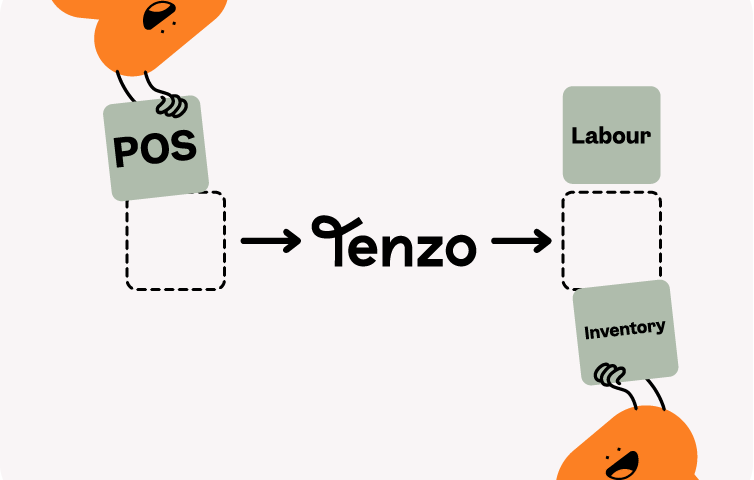In hospitality, success depends on creating memorable guest experiences while running a highly efficient operation. But in today’s competitive environment, intuition and experience alone aren’t enough — data is your most powerful tool. The challenge for many hospitality businesses is ensuring that everyone, from general managers (GMs) to head office, knows how to access, interpret, and act on that data.
Here’s how you can empower your team to use data effectively and consistently to improve performance.
1. Build a Data-Driven Culture
The first step is mindset. Data should not be seen as a head-office-only resource or a burden of reporting. Instead, it must become part of the everyday language of your business.
- Celebrate wins with data: Share positive results that came from data-driven decisions (e.g., improved guest satisfaction scores and reduced waste).
- Link data to purpose: Help staff see how the numbers connect directly to the guest experience — fewer stock-outs, quicker service and better reviews.
When everyone understands that data is there to support, not monitor, they’re more likely to engage. Creating a truly data-driven culture means moving beyond spreadsheets and reports to embed data into everyday conversations, decision-making, and recognition. It isn’t about overwhelming your team with numbers — it’s about helping them see how data supports their success and the guest experience.
2. Provide Accessible, User-Friendly Tools
If your GMs and frontline managers need to wade through complex spreadsheets, adoption will be low. Tools should be intuitive, visual and mobile-friendly.
- Dashboards that update in real time: Teams need to know they can rely on the data when needed and in turn be able to utilise the insights at any time.
- Clear KPIs that are tailored to specific teams: The reports that will be valuable to head office compared to GMs will be vastly different. You want your teams focused on what’s important to them, rather than overwhelmed by heaps of data and quickly losing interest.
- Simple visual cues (green for on target, red for off) allow team members in a fast-paced industry to quickly gauge performance on the go and seamlessly continue with daily operations.
Even the most committed team can’t embrace data if the systems they use are clunky, confusing, or overly technical. Empowerment starts with the right tools in the right format. When data feels accessible, it becomes part of everyday decision-making rather than an administrative burden.
3. Train and Upskill Continuously
Training shouldn’t stop at induction. Equip managers with the confidence to ask the right questions of the data and translate insights into action.
- Workshops: Practical sessions on reading reports and spotting trends.
- Scenario training: “If food cost rises 3%, what actions can we take?”
- Mentoring: Pair GMs with analysts or head office teams for regular knowledge-sharing.
The goal isn’t to turn every manager into a data scientist, but to ensure they can interpret performance metrics and make smart decisions. These initiatives don’t necessarily need to be undertaken by the business itself: tools organise training sessions to ensure engagement. When choosing tools, keep in mind what training resources they have and what the overall customer experience is like.
4. Encourage Collaboration Between Head Office and Properties
Often, data lives in silos. Head office analyses while GMs manage operations. The best performance improvements happen when these groups collaborate.
- Two-way feedback: GMs provide context behind the numbers; head office provides trend analysis. End of day logs are a quick and easy way to get a summary of the day’s service and embed it in the daily processes.
- Regular performance huddles: Joint reviews of dashboards where challenges and successes are discussed.
- Shared accountability: Both GMs and head office teams own outcomes, not just reports. Make relevant initiatives a group project, enabling the best ideas to come forward and prevent the “us vs. them” mentality and build a united performance strategy.
This partnership ensures data is not seen as a top-down directive but as a shared resource to guide smarter decisions, identify growth opportunities, and address operational challenges. By fostering this collaborative culture, employees at all levels feel supported, engaged, and confident in leveraging data to enhance guest experiences, optimise operations, and drive overall business success.
5. Turn Data Into Actionable Stories
Data alone rarely changes behaviour. Numbers in a spreadsheet may highlight an issue, but they don’t inspire action or commitment on their own. To truly empower your hospitality team, you need to translate raw metrics into clear, engaging stories that explain what’s happening, why it matters, and what can be done about it. Storytelling gives context, creates urgency, and connects performance data directly to outcomes that matter to both staff and guests.
- Instead of saying: “Food costs rose by 5%.”
- Say: “If we can reduce waste by 2%, that’s enough savings to reinvest in staff training or a lobby refresh.”
Instead of isolated figures, focus on trends and cause-and-effect stories that inspire staff and managers to act. Tailor the message to different audiences — from frontline staff to head office — and use visuals to make insights easy to grasp. Crucially, frame stories positively to celebrate wins and reinforce how data-driven decisions improve both performance and the guest experience.
6. Recognise and Reward Data-Led Success
People engage with what they’re recognised for. Celebrate managers and teams who improve KPIs through data-driven decisions. Recognition can be as simple as:
- Shout-outs in internal communications.
- Monthly awards for “best data-led initiative.”
- Reward performance using data-led indicators.
For a data-driven culture to truly take root, teams need to see that their efforts to use data are valued.
Recognition is a powerful motivator, and rewarding managers and staff for data-led achievements encourages consistent engagement with metrics rather than treating them as a reporting obligation.
For example, create a bonus scheme for site employees who drive the biggest upsells in the team and even go a step further and utilise your best performing sites to share their learnings with the rest of the company. When people see that analysing and acting on data leads to positive recognition, they are far more likely to make it part of their daily routine.
Final Thoughts
Empowering your hospitality team to embrace data is less about the technology and more about culture, communication, and confidence. By making data accessible, training your managers, encouraging collaboration, and recognising success, you’ll unlock performance improvements across the business.
In hospitality, the magic happens when human intuition meets data-driven insight. The businesses that master both will lead the way in guest satisfaction, profitability, and long-term success.
Want to empower your teams with Tenzo?
Tenzo is dedicated to empowering teams to enhance their performance. Ready to get started? Request a demo and take the first step toward smarter operations!




